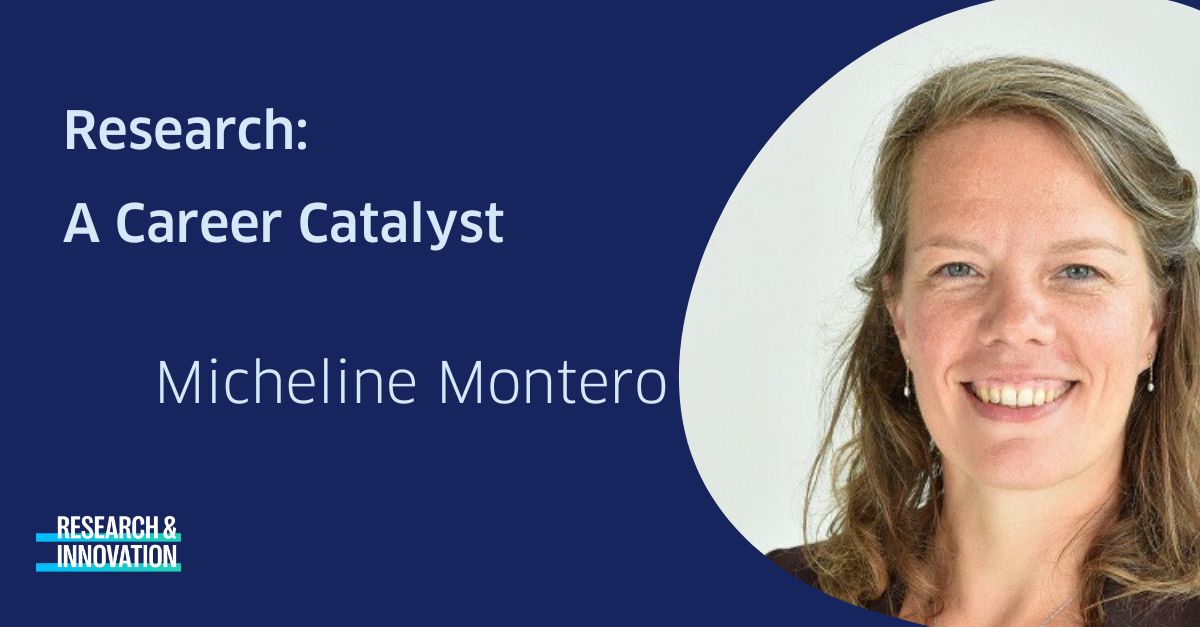

Research fosters logical thinking, curiosity, open-mindedness and a desire to learn, which means that, whatever subject you turn your hand to next, you’ll do well.
My career is particularly atypical. I joined Gaz de France in February 2006, after completing a thesis in energy and combustion. They were looking for a research engineer in chemical kinetics. My thesis, which dealt with combustion in car engines, included a section on chemical kinetics, so I applied. I didn’t know anything about gas combustion, but I knew about diesel and petrol combustion... That’s how I discovered the gas business. I stayed at Crigen for ten years, where I held a number of positions: research engineer, project manager, project portfolio manager, then division manager.
They were many and varied. I worked on indoor air quality, NGV engines [Natural Gas for Vehicles, or NGV, also known as biomethane fuel, is an alternative to petroleum], industrial combustion, boilers and furnaces, and in the end, I became successively head of two divisions, the first focusing on construction and the second on industry. Incidentally, I hadn't even been there a year when I’d already said to my manager: “Technical skills are great, but what I like is managing people.” Even if my manager didn’t immediately agree to my requests, and that’s understandable, that’s where I learnt how to bring people together, support them and help them grow. And because I liked this dimension and wanted to delve deeper into the human side of management, I left Crigen for HR.
You could definitely say that. I spent two years, first in HR and then in the Employee Relations Department, where I learned a lot. I had access to various files there, got to know a lot of people, and at the end of 2018, I grabbed the opportunity to join ENGIE GBS [the entity grouping together the Group’s support functions] and I joined the Real Estate and Logistics Business Support team where I took over in a managerial capacity. I managed a team of property managers for four years. And since January 2023, I have been managing a department that deals with Strategy, Arbitrage and Operational Asset Management. I have teams spread across France managing a portfolio of sites. Our role is to decide, on the basis of their occupancy and a number of other criteria, what work needs to be carried out at the sites, what will happen to them and so on. In other words, we represent the owner, ENGIE SA, in the region.
It was completely by chance! I’ve always loved physics and chemistry and I had the opportunity to write a thesis in this field. I knew absolutely nothing about engines, cars or gas combustion. I went there as I often do, with my big smile, and it was a success! Maybe also because I've always been motivated by learning new things.
It’s not the technical side, it’s management, and my second driving force is learning. So if I’m managing people and learning new things at the same time, that’s fine by me! That’s the curious thing about being a researcher: you’re a scientist for life!
The chance to change jobs every two years or so, so there’s a real variety of opportunities! I loved my ten years at Crigen. I met a lot of people and learnt a lot of things, and it also helped me to know what I liked doing and what I didn't like doing. I wouldn’t be here today if it hadn’t been for Crigen. I owe what I do today to the career I had before, so it’s a sign that research leads to everything. It fosters logical thinking, curiosity, open-mindedness and a desire to learn, which means that, whatever subject you turn your hand to next, you’ll do well.
I have a lot of them. But what drives me more are levers such as learning and, at the same time, growing and helping others grow. Once I’ve got these three dynamics in place, I'm happy.
The gift of ubiquity, especially for a mum like me, who has to be everywhere at once. Or to have a clone, I don’t know, I’m still hesitating!
The problem with women is that they limit themselves, they put up their own barriers. Of course, if you have the intellectual capacity, nobody can stop you from studying – nobody put any obstacles in my way to stop me from getting a PhD, even though I wrote my thesis in a particular, exclusively male environment – but our main problem is that we doubt ourselves a lot. Most men don’t ask themselves questions, they just go for it. For example, a woman who believes she has only three out of four prerequisites for a job will not apply, whereas a man will apply even if he only has one! Even if what I say is a caricature, there is a grain of truth: we tend to limit ourselves by excessively doubting our own legitimacy. I've worked a lot on myself in this area (and I still am...).
But I believe that having a wide range of opinions and visions is essential, and that women bring something valuable to the table. I know that there are training courses for women today such as “leadership for women”, but they should be taught right from secondary school level. Women and men are complementary with differently structured minds. And girls need to learn this from a very young age.